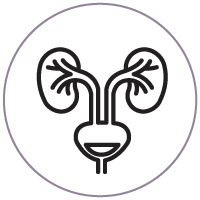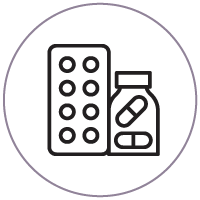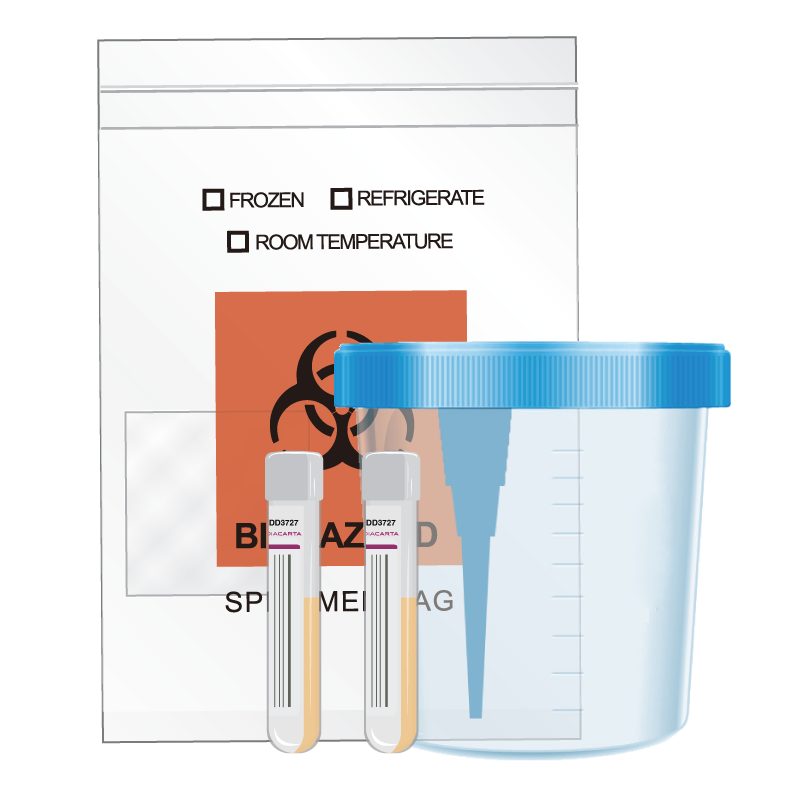Detection of Urinary Tract Infection (UTI)
Simultaneous detection and identification of urinary tract pathogens
CLIA-Certified Lab Service
Research Service
Early Detection
Diagnosis
Therapy Selection
Therapy Monitoring
Introducing UTI-Detect
UTI-Detect is an RT-PCR assay, for the qualitative detection of 23 bacterial, 6 fungi species, and 6 associated antimicrobial resistance genes that may be present in the urine samples collected from suspected patients.
Urine sample
Detects & identifies 23 bacterial pathogens, 6 fungal pathogens, and 8 antibiotic resistances
Fast turnaround within 48 hours with higher sensitivity (96.88%) and higher specificity (99.34%)
Comprehensive test report suggesting drugs of choice for treatment

What is UTI?
Urinary tract infection (UTIs) is caused by a range of pathogens, most commonly by Escherichia coli, Klebsiella pneumoniae, Proteus mirabilis, Enterococcus faecalis and Staphylococcus saprophyticus. Symptoms may include pain with urinating, pelvic pain, incontinence, difficulty urinating, frequent urination, feeling a need to urinate frequently, and sometimes fever. Some infections may also have no symptoms.

How is UTI treated?
Treatment consists of one or more medications targeting these pathogens. Failure of the antimicrobial drug to treat UTI is common and due to resistance of the pathogen to the drug therefore it is also important to know if the pathogen detected resistant to specific antimicrobial therapy, and what will the sensitive drug be to treat the infection.
Why do we use PCR testing for UTI?
PCR has been utilized for UTI testing for 10 years and it has clear advantages over routine culture.
PCR Testing
Turnaround time is 24-48 hours
Antibiotic resistant genes detected to determine appropriate treatment
Directly measures all pathogens in samples
Culture
Turnaround time is 3-7 days
Antibiotic resistance is difficult to detect without knowing all pathogens responsible for infection
Secondary infections can be masked by primary infection
Pathogens detected and antibiotic gene resistance
Bacteria
- Acinetobacter baumannii
- Aerococcus uninae
- Citrobacter freundii
- Corynebacterium urelyticum
- Enterobacter cloacae
- Enterococcus faecalis
- Enterococcus faecium
- Escherichia coli
- Klebsiella aerogenes
- Klebsiella oxytoca
- Klebsiella pneumoniae
- Morganella morganii
- Proteus mirabilis
- Proteus vulgaris
- Providencia stuartii
- Pseudomonas aeruginosa
- Serratia marscesens
- Staphylococcus aureus
- Staphylococcus saprophyticus
- Streptococcus agalacticae
- Treponema pallidum
- Ureaplasma parvum
- Ureaplasma urealyticum
Yeasts/ Fungi
- Candida albicans
- Candida auris
- Candida glabrata
- Candida krusei
- Candida parapsilosis
- Candida tropicalis
Resistance
- Carbapenemen resistance- IMP
- Carbapenemen resistance- KPC
- Carbapenemen resistance- NDM
- Carbapenemen resistance- OXA-48
- Carbapenemen resistance- VIM
- ESBL-CTX-M
- Methicillin resistance- mecA/mecC
- Quinolone resistance – qnr
- Sulfonamide resistance- sul
- Trimethoprim resitance- dfrA
- Vancomycin resistance – vanA
- Vancomycin resistance – vanB
The DiaCarta offerings
SERVICE
UTI-Detect is available at DiaCarta CLIA as a Lab-Developed-Test (LDT).
- Service catalog number: DC-03-1007
- Z code: Z02YU
- Acceptable specimens: 2 tubes of urine sample per patient (>1mL per tube)
- Method: RT-PCR

